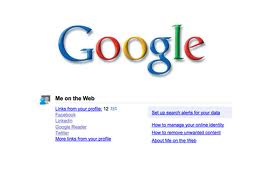 |
| Google Docs |
Google has already established dominance in the market for cloud-based office suites, with Google Docs, and for months the search engine behemoth has reportedly been testing offline support, but now a member of the Google Docs team confirming that it will begin to unfurl the ability to use the word processor, spreadsheet, and presentation software while not connected to the Net later this summer.
Offline support from Google Docs that was slated to arrive early this year, has often been an iffy proposition. Last month, Google promised offline Google Docs this summer and said it is testing the feature internally.
But according to Cnet, it is not just internal: the unofficial Google Operating System blog reported a case in which a reader noticed a black status bar at the top of the browser window with the tag line indicating “Offline Docs,” the alert “network connection lost,” and apparent links for “switch to online mode” and “switch to offline mode.”
However, it is a sometimes-on, sometimes-off thing, with Google supporting various means of using Docs offline. In addition, offline Google Docs will also have huge repercussions for Google's Chrome OS, which has been disapproved for being unusable when there is no internet network available; but if you can still edit documents while offline, it could become much more useful.
Offline Edits:
Writing in a Q&A thread on Reddit, Jeff Harris of the Google Docs team quoted as saying, “You are going to see offline start to roll out later this summer. We used to have offline with Google Gears, but it became pretty clear that plugins were not the right approach. We have been reimplementing offline using HTML5 standards like AppCache, File API, and IndexDB.”
“We are some of the first web apps that are really intorducing those standards to the test, so it has taken a while to iron out the kinks,” he added.
As such, it should also be noted that one of those offline applications, IndexedDB, is still in rather early days of the standardization process and has not necessarily won over all the browser makers. Do not be surprised therefore if only early fans such as Mozilla's Firefox and Google's Chrome support offline Docs.
The Gears concept to offline Google Docs provided the feature earlier but with considerable restrictions. For example, spreadsheets could not be edited offline. Technical challenges pop-up when offline Docs go online again, particularly when multiple people are editing the same document, Harris said.
He also explained how the service will work:
Nevertheless, we will release in whatever incremental pieces make sense. But “The long term direction is if you access a Doc URL while offline, it should open the local copy of the doc and let you edit. When you go online all your edits get synced in the background. You should also be able to see a list of your docs while offline.”
“We will need to work through all the knotty problems with how to merge conflicting edits. It is fun stuff.”
Of course, this is pretty inspiring to folks interested in a free and easy-to use Office suite that you can use from just about anywhere. Now the question is when this will happen, and how Google plans to actually implement it.
Read MOre :- http://news.ebrandz.com/google/2011/4119-google-docs-finally-readying-support-for-offline-mode-this-summer.html








